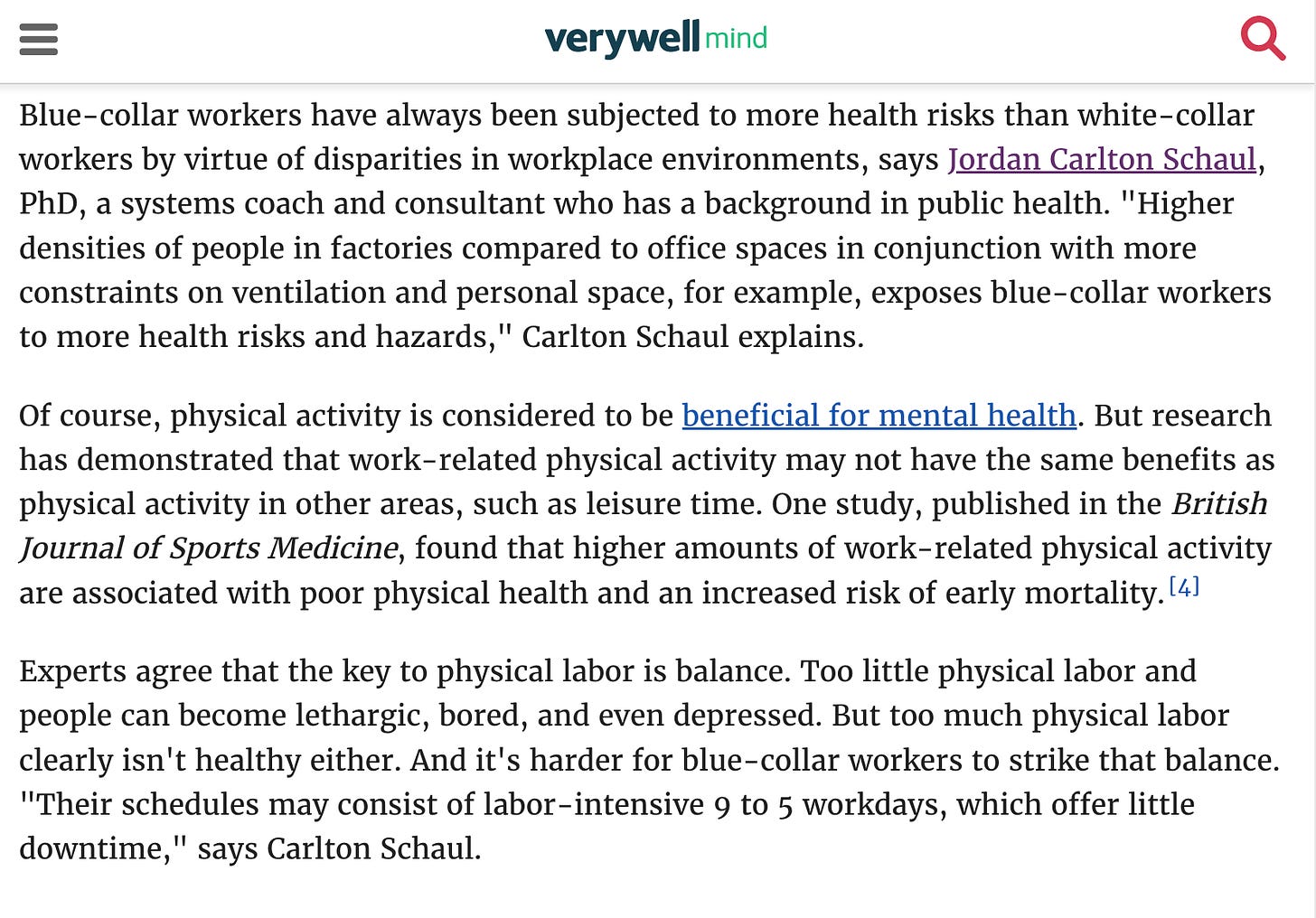Stress in Professions vs. Toxicity in Workplace Cultures
The Great Resignation of Blue-Collar and White-Collar Workers
By Jordan Schaul | Scapegoat Strength
Retail, call center, and food service industries continue to rank high among the most stressful job sectors, in part, because of low wages and exhaustion, but are they necessarily toxic?
I’m sure there are many librarians and lifeguards who report that their work experiences are not inherently stressful, but that the organizations they work for are dysfunctional. Dysfunctional and toxic work environments leave many employees disillusioned about their career choices. Hence, toxicity can add to stress and impact mental health.
A 2022 MIT Sloan Management Review study examined turnover (AKA attrition) and found a disregard for ethics and respect along with a failure to promote diversity, equity, and inclusion to be essential elements of unhealthy or toxic workplace cultures. The authors reported that compensation ranks as low as 16th among predictors of job turnover. In addition, they reported that the health of a workplace culture is 10.4 times more powerful as a predictor of job attrition than compensation. And while blue-collar jobs are perceived as inherently more stressful because of physical and psychological demands, workers representing both categories left their jobs during the Great Resignation in comparable numbers.
Covid certainly exposed inequities between the blue-collar and white-collar workforces when it comes to stress and mental health, but these disparities existed well before the Pandemic.
In an interview for Very Well Mind, I said “[b]lue-collar workers have always been subjected to more health risks than white-collar workers by virtue of disparities in workplace environments. Higher densities of people in factories compared to office spaces in conjunction with more constraints on ventilation and personal space, for example, exposes blue-collar workers to more health risks and hazards."
It is not the stress of the job, but rather the toxicity of the workplace culture that creates turnover. This week, Dr. Nathalie Martinek and I will again explore toxic work cultures on our Fireside podcast Institutionalized. The episode will look at different industries and professions from our own experiences, anecdote, and from organizational management and behavior literature. We’ll examine what makes certain industries more susceptible to toxic cultures.
Remember that some of these professions are notoriously stressful, but toxicity is reflected in the norms and values of a specific company or organization. There are some companies represented in historically perceived stressful professions and toxic industries, which actually support much healthier cultures. A lack of empathy and collegiality in a work environment makes someone leave a job despite their passion for a given career. This is why you may hear the commonly held belief that people don’t leave bad jobs, they leave bad employers.
References:
Blue Collar Work and The Mental Toll of Physical Labor https://www.verywellmind.com/the-mental-toll-of-physical-labor-5222433
Toxicity and stress Perceived Stress Among Different Occupational Groups and the Interaction with Sedentary Behaviour https://www.ncbi.nlm.nih.gov/pmc/articles/PMC6926860/
Toxic Culture is Driving the Great Resignation https://sloanreview.mit.edu/article/toxic-culture-is-driving-the-great-resignation/






